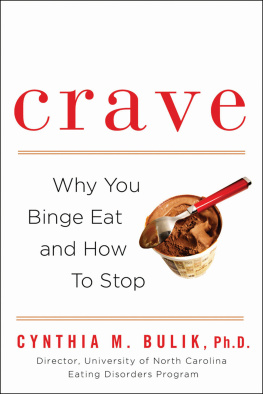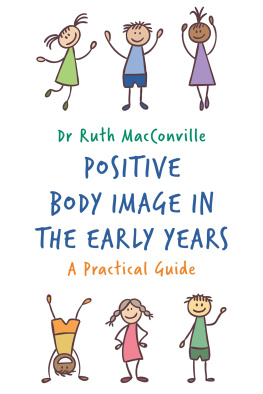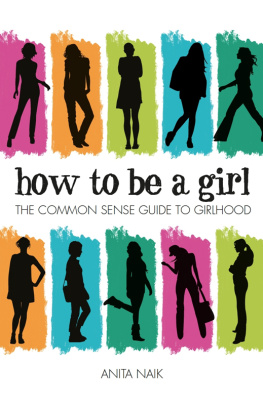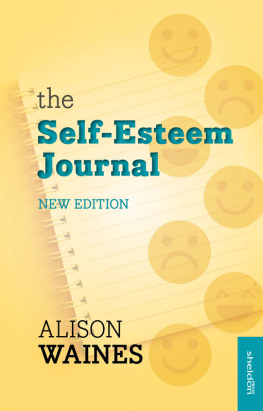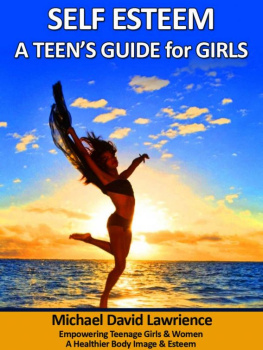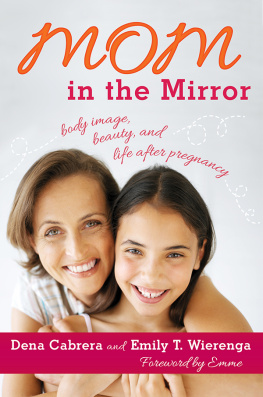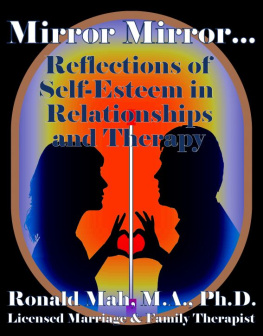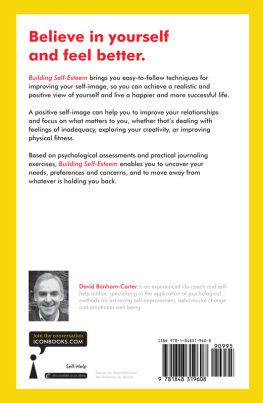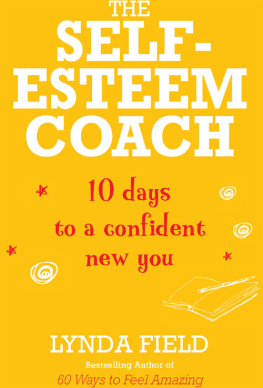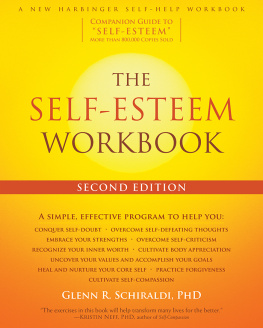Dr. Cynthia Bulik shows us the absurdities by which we liveworrying about body image, trying to match unrealistic standards, and beating ourselves up because we cannot achieve what we do not see as ludicrous and impossible. With her keen scientific intellect, comedic wit, and remarkable prose, she not only outlines the forces that helped us internalize these images but provides us with the skills needed to defeat those negative self-images and embrace the wonderful reality of who we are. For every woman who ever thought If only I were And really, isnt that all of us?
Deborah C. Beidel, Ph.D., director of the doctoral program in clinical psychology, University of Central Florida
Buliks practical advicegrounded in evidence-based research and coupled with the experience and wisdom of a woman, mother, teacher, and cliniciangive the reader an untethered look at the reality of how both our biology and environment contribute to devastating eating disorders and other problems with self-image. Brava!
Chevese Turner, CEO, Binge Eating Disorder Association (BEDA)
The Woman in the Mirror is all of us, and this compelling account of how feelings about our bodies affect us throughout our lives is filled with inspiration and hope. Food for thought, indeed.
Susan Ringwood, chief executive of Beat, the UKs leading charity supporting and campaigning for people with eating disorders
Crave: Why You Binge Eat and How to Stop
Abnormal Psychology
Eating Disorder: Detection and Treatment
Runaway Eating
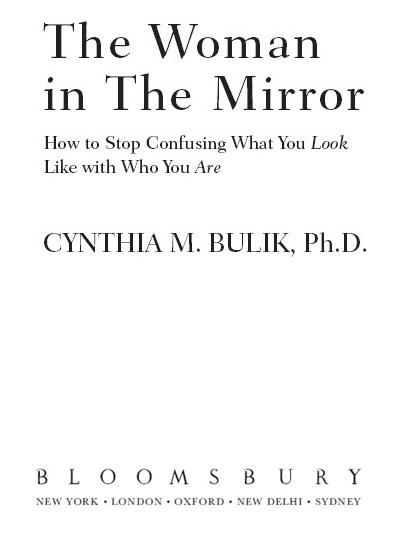
Bloomsbury USA
An imprint of Bloomsbury Publishing Plc
1385 Broadway
New York
NY 10018
USA | 50 Bedford Square
London
WC1B 3DP
UK |
www.bloomsbury.com
BLOOMSBURY and the Diana logo are trademarks of Bloomsbury Publishing Plc
First published 2012
This electronic edition published 2012
Cynthia M. Bulik, Ph.D., 2012
All rights reserved. No part of this publication may be reproduced or transmitted in any form or by any means, electronic or mechanical, including photocopying, recording, or any information storage or retrieval system, without prior permission in writing from the publishers.
No responsibility for loss caused to any individual or organization acting on or refraining from action as a result of the material in this publication can be accepted by Bloomsbury or the author.
ISBN: ePub: 978-0-8027-7874-1
Library of Congress Cataloging-in-Publication Data is available.
To find out more about our authors and books visit www.bloomsbury.com. Here you will find extracts, author interviews, details of forthcoming events, and the option to sign up for our newsletters.
Bloomsbury books may be purchased for business or promotional use. For information on bulk purchases please contact Macmillan Corporate and Premium Sales Department at .
If you are a woman, this book is dedicated to you.
Contents
PART ONE:
Chapter 1:
Chapter 2:
Chapter 3:
Chapter 4:
Chapter 5:
Chapter 6:
PART TWO:
Chapter 7:
Chapter 8:
Chapter 9:
Chapter 10:
Chapter 11:
Coda:
All matters regarding your health require medical supervision. This book applies my decades of experience as a psychologist, a woman, and a mother to the topic of self-esteem and body esteem in women. It is neither intended nor designed to replace the opinions of your health-care professional.
I have used my own clinical experience and have incorporated the personal stories of many patients, acquaintances, and family members to illustrate the principles outlined in this book. To protect their privacy I have used pseudonyms and, in some cases for clarity or convenience, combined experiences or commentaries into one character.
Were never good enough, smart enough, pretty enough, tall enough, thin enough. If our skin is dark, we lighten it; if our hair is curly, we straighten it. We look in the mirror and say things to ourselves that we would never say to other people. We wound ourselves with our own words. Our self-insults arent just about looks, although appearance might be the number-one target. Women are experiencing a self-esteem crisis. Even the ones who seem self-assured on the surface are often paralyzed by self-doubt in the privacy of their own thoughts. We doubt ourselves, undervalue ourselves, and second-guess ourselves, and much of this devaluation gets played out on the weight and physical-appearance battlefield. We think that if we were thinner, fitter, taller, less wrinkled, or more put together, wed feel better about ourselves, be more powerful, be more lovable, and be more successful. So we try to fix whats ailing us on the inside with a diet, a nose job, implants, Botox, expensive antiwrinkle creams, and new shoes. We go to great lengths and expense to change our bodies and dress them up to fit some external notion of whats ideal. Yet for all the diets, cosmetics, and procedures, we are no happier with our bodies or ourselves.
Why does our inner struggle with identity and self-esteem translate directly to weight and appearance concerns? The primary reason is that our society has led us to completely conflate self-esteem and body esteem.
Self-esteem refers to how you think and feel about yourself as a total packageyour personality, your role in relationships, your accomplishments, your morals, your valueseverything that contributes to who you are as a person in the world. Body esteem refers to how you think and feel about your bodyyour size, your shape, your hair, your featuresall of those attributes that contribute to your physical appearance. If you are fortunate enough to have wrapped your head around this distinction and have managed miraculously to remain sheltered from modern society for your entire life, then you can successfully separate your self-esteem from your body esteem. But most of us have not been so fortunate. Whereas body esteem is supposed to be a minor component of self-esteem, in our society, body esteem often eclipses self-esteem and becomes the primary and sometimes only dimension on which women evaluate their self-worth. Even if they are successful businesswomen, wonderful mothers, Olympic athletes, scientists, or models, a bad hair day can bulldoze any positive thoughts about who they are, giving all the deciding power to how they look.
Were going to explore why and were going to learn how to disentangle self-esteem from body esteem.
On the most fundamental level, body esteem is easier to deal with than self-esteem. Self-esteem includes so many intangible, abstract, and nonvisible factors. It is precisely because appearance is concrete, changeable, and visible that its easier for us to focus on body esteem. Its easier to lose five pounds than to address a fundamental worry that you are not good enough. Its easier to pay fifty dollars for a fancy antiwrinkle cream than to have a long hard thought about aging. But these quick fixes are just Band-Aids. They might give you a brief boost: I feel good in these shoes, or I feel more assertive with my new breasts. But they dont address the core self-esteem issues that plague you.
Although the landscape for women has changed considerably since I was a young girl, women are still too often silenced by society. And even though society has changed, many of the warnings that were uttered when we were girls have not eroded with time. Dont be too smart; dont be too loud; dont be too opinionated; dont eat too much in public; let the boys win. In fact, many of those internalized messages contribute to the continuous negative self-talk that women and girls tell me is going on in their heads all the time. I hear this in my practice, in the workplace, and even in my daughters schools. Look around you. Every time we see a picture of the Senate, the House, the Supreme Court, the astronauts, a meeting of world leaders, the Nobel Prizewinners, and even top chefs, they are overwhelmingly male. On some level, we are getting the implicit message that this is not our world. When we see our male colleagues making more money than we do for the same work, on some level we know that this is not our world. Since this is not our world, rather than acknowledging our ire and fighting for justice, instead we blame ourselves. Im not good enough. I took time off to have children, so its my fault. Im a bad negotiator. Rather than staying in the ring and putting up a good fight, women retreat and self-blame.
Next page

